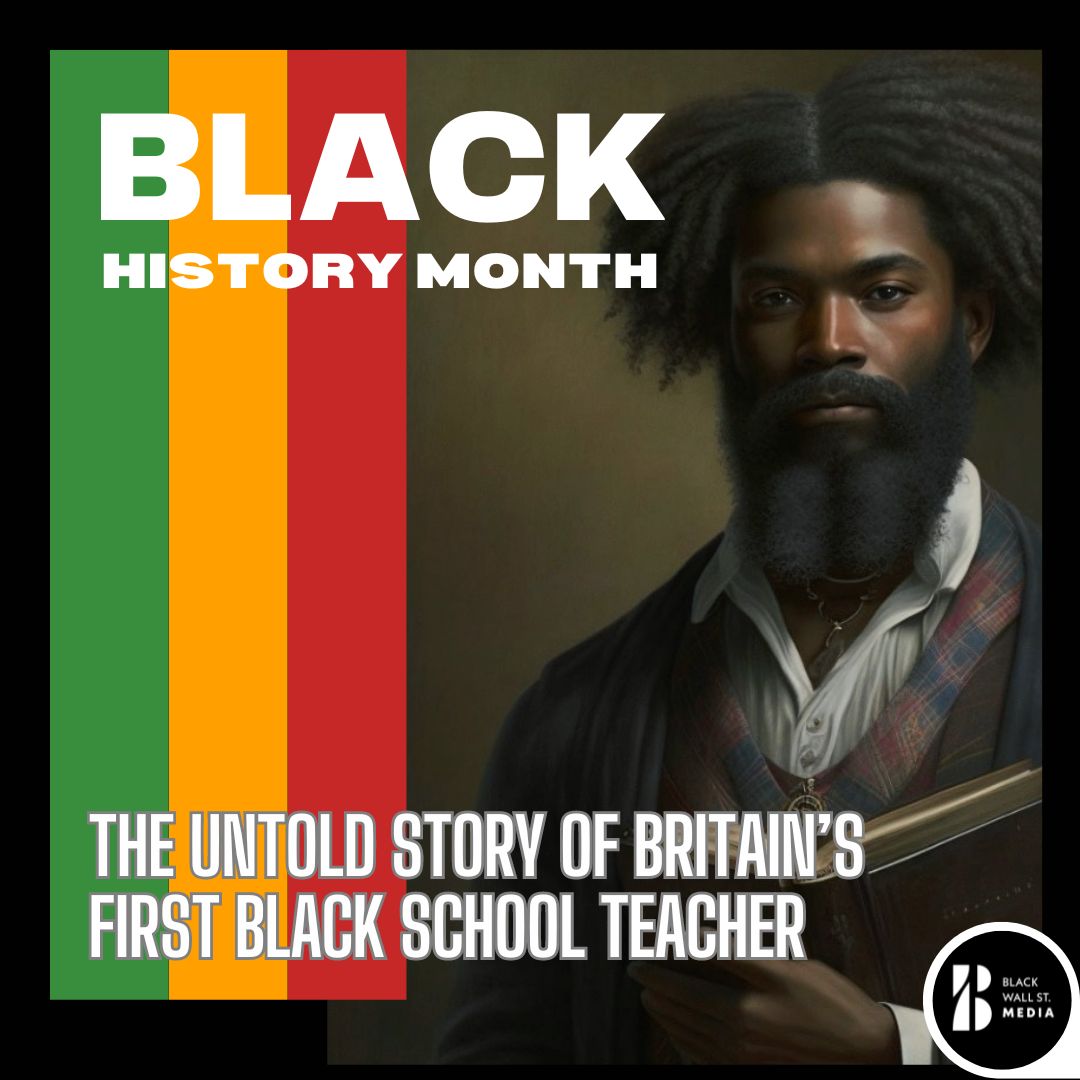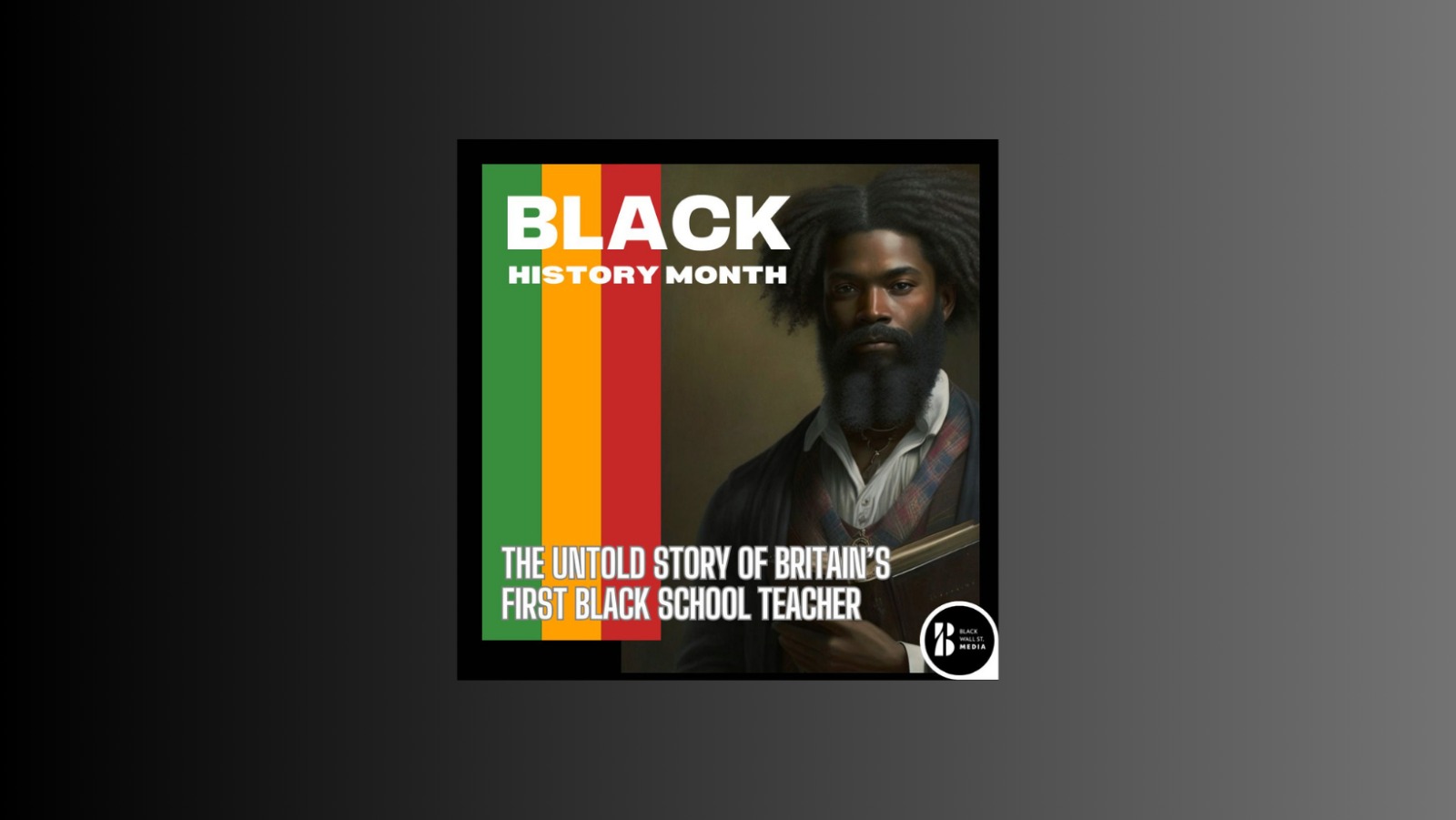HISTORY
Rediscovering Tom Jenkins: Hawick's Unacknowledged Hero
“"We need to really champion and celebrate diverse stories in our rich histories.”
Black Wall St. MediaContributor

As the season unfolds, the Alchemy Festival, an iconic cultural gathering in the heart of the Scottish Borders, is set to throw light on a vital yet overlooked chapter of the region’s history: the life and contributions of Tom Jenkins. The call for Jenkins to be accorded greater recognition is louder than ever, and here’s why.
Britain’s First Black School Teacher

A small plaque marks the spot where the man believed to be Britain’s first black school teacher educated children in a Scottish village.
Tom Jenkins, believed to be Britain’s first black school teacher, illuminated the lives of dozens of children in Teviothead near Hawick between 1814 and 1818. Born in 1797 along the Upper Guinea coast—current-day Guinea, Sierra Leone, or Liberia—Jenkins’ life took a twist when his father, a slave trading chief, entrusted him to Capt James Swanson at the age of six.
Swanson, a native of Hawick, commanded the slave ship Prudence. The intent was noble: to provide young Tom with an education in Britain and later return him to West Africa. Liverpool was their entry point into Britain, a city notorious as the nation’s prime slaving port. Eventually, the duo settled in Hawick, a town then on the cusp of its industrial awakening.
But fate had other plans. Swanson’s untimely demise led to Jenkins being embraced by Swanson’s kin. As the narrative unfolds, one gets glimpses of Jenkins’ thirst for knowledge. With sheer determination, he grasped English and even the local Teri dialect, showcasing an unparalleled dedication to learning.
An Inspiring Educational Journey
However, the road to recognition was not smooth. Despite his evident brilliance, Jenkins faced barriers when he sought to become the schoolmaster at Teviothead at 20. But his excellence was hard to ignore.
The fourth Duke of Buccleuch, among other influential patrons, rallied behind him, converting the village smiddy into a school. The building, now the Johnnie Armstrong Gallery, pays tribute to Jenkins with a humble plaque.
Dr. Jade Montserrat, an artist deeply engrossed in investigating the entwined tales of Jenkins and anti-slavery proponent Frederick Douglass (who graced Hawick in 1846), elucidated on Jenkins’ prodigious journey.
With support, especially from Quakers, Jenkins later enriched his academic credentials at the University of Edinburgh. A stint in Mauritius as a school administrator became his final calling. Jenkins never returned to Britain and breathed his last on 16 June 1859.
The Alchemy Festival’s Tribute
Montserrat’s intensive six-month residency with the Alchemy Festival brought forth the glaring absence of Jenkins’ tale from popular narratives. Despite Jenkins being a pivotal educator and having the backing of distinguished patrons, his saga remains shadowed.
Montserrat asserts that Jenkins’ reverence in Hawick set a positive precedent, likely aiding the acceptance of Frederick Douglass during his visit to the town.
Yet, the quest for rightful recognition persists. Montserrat lamented the overemphasis on white colonisers and industrialists while significant black contributors like Jenkins and Douglass remain side-lined.
“Our histories are intertwined and rich. It’s high time we champion diverse stories,” she stressed.
As the Alchemy Festival progresses, Montserrat aspires to elevate Jenkins’ story, placing it front and centre. It serves as a powerful reminder: while history cannot be rewritten, forgotten heroes like Tom Jenkins deserve their rightful place in the annals of time.
Black Wall St. MediaContributor
















